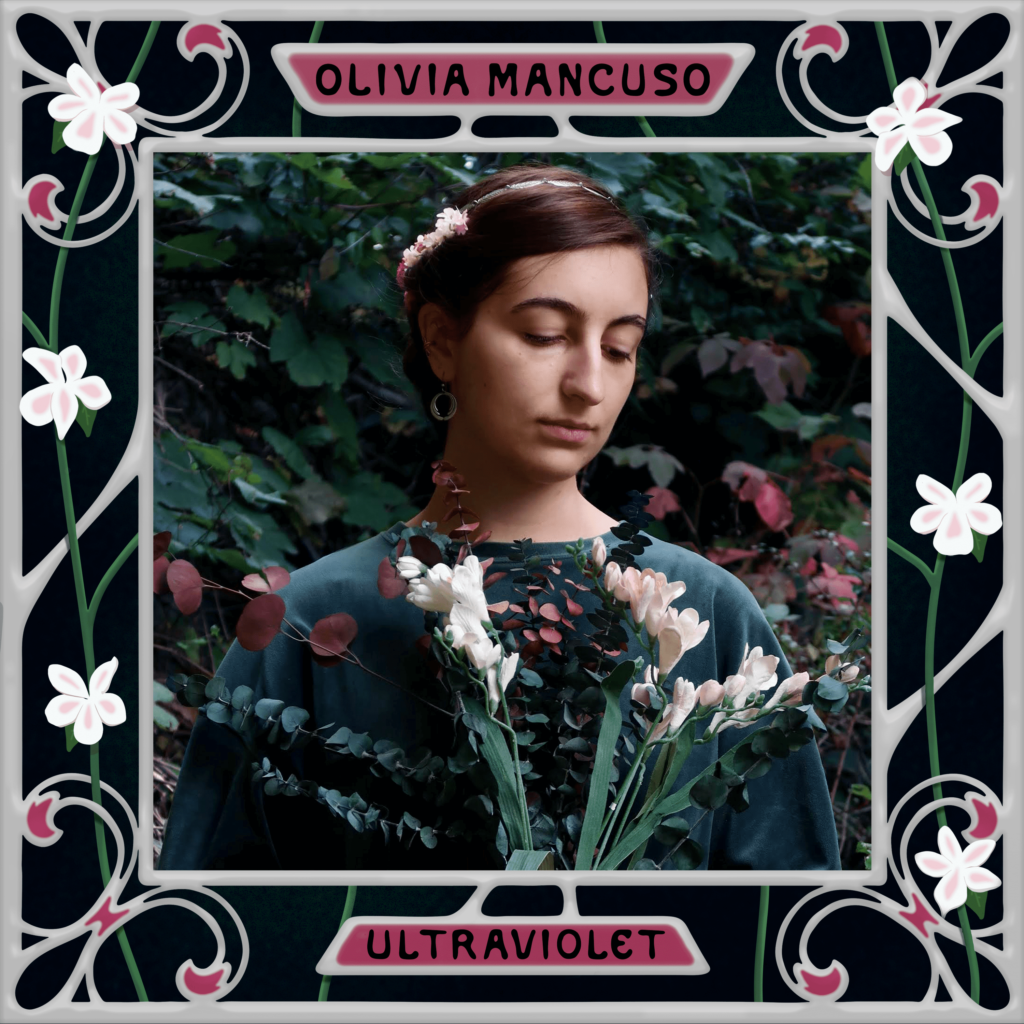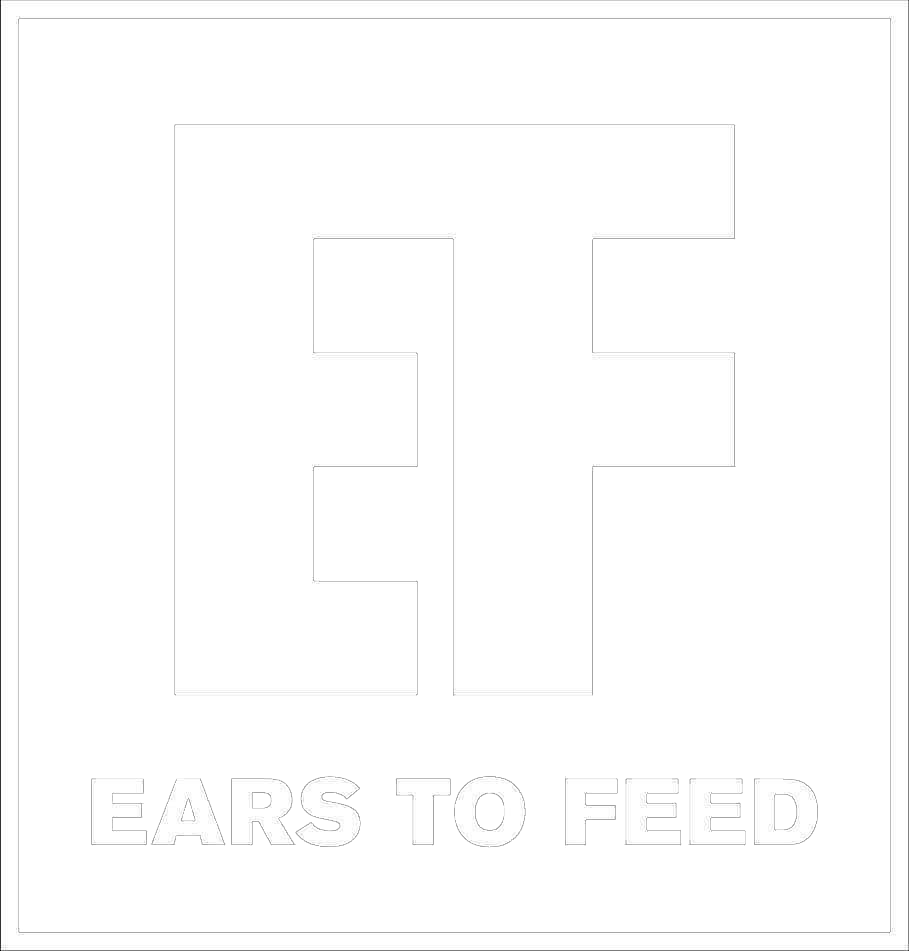Brooklyn based electronic singer-songwriter Olivia Mancuso’s new EP Ultraviolet reveals her talent for carefully crafting lush pop songs that are both comforting and anxious. The four song project is full of familiar sounds and sentiments, but is packaged in a way that is completely novel. Ultraviolet is set to release this Friday, January 29th.
Over Zoom, Mancuso spoke with a staff writer about her new EP, its recording and the future of live music.
You can stream Ultraviolet ahead of it’s release below, and preorder the album here.
When did you start writing Ultraviolet?
I started writing the first song on the EP in high school. It was a song I forgot about and came back to much later. It’s been the past 3 to 4 years writing them, and eventually getting deep into the recording process.
So this is a long time coming?
This is the first multi-song release that I have done. All of these songs existed at least a year ago, if not longer, entirely written. I had an idea of what I wanted it to sound like, the production kept continuing until like six months ago. It’s been a really drawn out thing.
How has your day job and the pandemic impacted working on the EP? Has it affected your process of being creative during this strange time?
For this EP it wasn’t a huge impact because I was already working remotely on it with a couple of friends. I did all of the recording and production myself, but I discovered through this process I don’t love mixing my music. It’s been very strange for collaboration. We’ve started having to say to each other, “OK, we’re going to try to get this done by this date. Whatever crisis pops up notwithstanding.” The deadlines are a little looser, there’s a little more checking in on people like “are you OK? if you can’t get this in there is no pressure.” So just being sensitive to that, being there for each other.
It’s been a weird year writing-wise for me. I haven’t been making as much new music, mostly because I’ve been focusing on finishing this. Still, I’ve also been doing a live stream series on my YouTube channel, and that has been an awesome outlet for me. That interaction is not something you get in a live show so much, if someone asks you a question, you’re like, “why is this person heckling me when I am on the stage?” But online I can answer your question. It’s kind of cool.
I had a question about the name of the EP. Does it have a deeper meaning? Ultra comes from Latin, where it has the meaning “located beyond.” Violet can represent spiritual wisdom, faithfulness, humility. Did I read too much into it?
Not necessarily. I wanted to name it after my song “Ultraviolet” because it is the most emotionally intense song on the EP, it’s like the most dramatic production. That song is about my anxiety and dealing with mental health issues, in particular, it is about the tipping point of realizing that you’re experiencing anxiety again and what that feels like. So when I say “ultraviolet every time” it’s like that familiar feeling of falling into this uncomfortable position.
I get very attached to interesting words when I’m writing music, and this was one of those words that I had written down in a notebook somewhere all by itself and found it very compelling. I was working on this song, and it came up in my head because I had written down and was like, “oh, this is cool.” It was one of those things where I was writing it. I wasn’t sure what that was going to mean fully but by the end of the song I knew “this is what ultraviolet means.”

You mentioned before how Ultraviolet is about anxiety and mental issues. Is that the overarching theme? Is that something you refer back to?
I don’t know if you could call it an overarching theme, I would say the song “Unsung” also deals with some anxiety. The verses are very loving, talking about another person, the chorus is like, “oh my god, I am second-guessing everything.” Definitely, but there is a certain “lightness” to it. “Double Time” is a happy song about being in a long-distance relationship. So I guess maybe an overarching theme is finding the good moments in the melancholy.
How would you describe your music to someone who has never heard it before?
I would say electronic singer-songwriter. What I mean by that is electronic production, lots of synths and experimental stuff but also in the singer-songwriter folk kind of tradition. Very emotional music, but still in a pop format.
As I was listening to the EP, every time I would hear a real instrument, my ears would perk up. You start most of your songs with a synthesizer, and then in the middle of the song, suddenly you have a harmonica, a cello, a violin, a real piano layered on top of a synth. Your music is very tactile in a gene of music that can be quite cold. The way you bring the two of them together is a nice combination of the two. Could you talk about your influences?
Thank you for saying that. My music falls that way because I am so interested in the intersection of electronic and acoustic elements, I always want both. I can’t have one or the other. A big influence right before I started recording this was this one artist called Oh Land from Denmark. She makes really interesting pop music. Her voice is her primary instrument. The way she does background vocals is fascinating to me. I would also say James Blake was also a huge influence on me. I look up to him as another piano player and producer. And he is just the most incredible vocalist. Many artists get boxed into using one color of their voice, they have a particular sound, but he uses whatever timbre or whatever dynamic the song demands.
The last photo you posted on your Instagram is of a quartet. What was it like collaboration with other musicians like?
My songwriting process was pretty solitary for the EP. Typically just me and the piano. “Double Time” was a little different because it started on my computer. I tend to start working with other people after I have had the initial idea. I didn’t do any co-writing with anyone on this. Still, after a certain point of working with it on the computer, recording my synth parts, I would develop ideas like “I need to record drums for Ultraviolet.” At my music school, there were student musicians everywhere. I knew tons of people who would be willing to play at a moment’s notice. I called in my friend Jackson for the drums; I called my other friend Ellen and was like, “any chance you’re quartet could read some arrangements for me?” I just really tried to take advantage of the space there and the facilities. I got to book that recital hall, which was lucky. We did that session on Easter Sunday, so there was no one around. It was perfect.
Who do you want this your music to resonate with?
That’s something I think about, but I’m not quite sure. I don’t know. It’s a very reflective and inward-looking EP, but I don’t know. I hope people hear something and can connect with something in their own life.
Are you planning on playing this live? Do you plan on bringing the violin, bringing the cello? What is the live setup going to be like?
Unless we start getting vaccines tenfold, I don’t think I’ll be able to do this with a band for a long time. I am hoping to do a live stream release party. I haven’t set a date because I have been so busy doing stuff for the release. But eventually I would love to link up with a drummer and a couple of other players and bring it to life, but I don’t know when we will be able to do it again.
You could run it through Ableton or Logic, but I feel like you would be doing your EP a disservice.
I have experimented with Ableton, using it for live stuff. For me using Ableton for playback and for controlling other things feels like assembling a giant instrument. The piano is only one element of that, and then I have the grid controller and all the other pads. That’s how I am hoping to play it on the live stream. If I am playing my music, I want to be playing something. I am not the type of person who wants to be singing with a backing track. It’s more fun to be super involved and physically play it.
How do you feel about the future of live music? I am sure you are up to date on saving independent venues. As an up-and-coming artist, what are your thoughts on what’s to come next, especially for New York City?
It’s frustrating to hear about all the struggles venues are having right now. I think it will come back, it may take longer than we expect, but I think people will be really hungry for it when it’s okay to go out again. In New York, I believe there will always be pockets of underground places that are game to work with up and coming artists, even if that means more house shows for a while because venues have closed. The art world will always find a way to get together.
I will say though I have done more performances this year than any year in my life, so I think that so much of it has to be online right now has broken down many barriers. Creating my live streaming series was never something I would have thought of before, but it’s been such a fantastic way to connect with people, so I am grateful for the experience anyway.
Do you have an album planned for the future?
That looks pretty far in the future because when this project started, it was 11 songs.
So what happened there?
I just kept whittling it down to the core of what I wanted to present. Some songs I loved playing and experiencing myself, but when I started to record them, I was like, “Hmm, maybe this doesn’t work for this project.” When I start working on the next project, there will be a significant volume of songs to pick and choose from.
This interview has been edited down for clarity.
